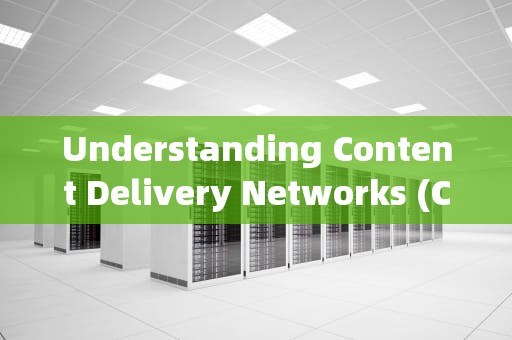Content Delivery Networks, or CDNs for short, are a critical component of today's internet infrastructure. They play a pivotal role in ensuring fast and reliable content delivery to users across the globe. In this article, we will delve into the meaning and significance of CDNs, their working principles, and the benefits they offer.

Introduction to CDNs
A Content Delivery Network (CDN) is a distributed system that delivers content such as web pages, videos, and applications over the internet more efficiently. The primary goal of a CDN is to minimize the latency time between the user and the content provider by distributing content across multiple servers globally. This ensures that users can access content quickly and without any interruptions, even under high traffic conditions.
Working Principle of CDNs
The working principle of a CDN is based on the concept of caching and distribution. When a user requests content from a website, the CDN intercepts the request and directs it to the nearest server that has the cached version of the content. This process is also known as 'edge caching'. If the requested content is not found on the edge server, it retrieves it from the origin server (the original source of the content) and then caches it on the edge server for future requests. This way, subsequent users who request the same content can be served from the edge server, thereby reducing the load on the origin server and improving overall performance.
Types of CDNs
There are two main types of CDNs:
1、Third-Party CDNs: These are services provided by third-party providers like Cloudflare, Alibaba Cloud CDN, Amazon CloudFront, etc. They offer a range of features including content delivery optimization, security measures like DDoS protection, and analytics tools to track user behavior. These CDNs are typically used by businesses that require scalable and secure content delivery solutions.
2、In-House CDNs: These are internally managed CDNs that are built by companies to serve their own websites or applications. They are tailored to meet specific requirements and can integrate with other systems seamlessly. In-house CDNs provide greater control over content distribution and offer better security than third-party CDNs. However, they require significant resources to build and maintain.
Benefits of CDNs
CDNs offer several benefits that make them indispensable for modern businesses:
1、Performance Optimization: By distributing content across multiple servers, CDNs ensure that content is delivered quickly to users regardless of their geographical location. This reduces loading times and improves user experience.
2、Load Balancing: CDNs distribute traffic across multiple servers, which helps in balancing the load and preventing any single server from becoming overwhelmed during peak traffic periods.
3、Security: CDNs provide additional security measures such as DDoS protection, malware scanning, and data encryption, which helps in safeguarding sensitive information transmitted over the internet.
4、Cost Efficiency: By reducing the load on origin servers, CDNs help businesses save on bandwidth costs and improve their overall efficiency.
5、Global Access: CDNs enable businesses to reach a wider audience by delivering content from servers located in different regions around the world. This ensures that users can access content quickly regardless of their location.
Case Studies
Let's take a look at some real-world examples of how CDNs have made a significant impact on businesses:
1、Netflix: Netflix uses a complex CDN architecture to deliver streaming media to millions of users worldwide. By leveraging edge servers located in various countries, Netflix ensures that its customers can access content quickly and with minimal buffering. The company also uses machine learning algorithms to optimize its CDN setup for maximum efficiency and performance.
2、Amazon: Amazon's CloudFront service is a popular CDN offering that provides fast global access to its customers' applications and websites. By using CloudFront, businesses can reduce the load on their origin servers while providing a seamless browsing experience to their users across different geographies.
3、Twitch: Twitch, a popular video streaming platform, uses a custom-built CDN called Twitch Interactive Video Delivery (TIVO). The TIVO network consists of hundreds of edge servers strategically placed around the world to ensure low latency for live streamers and viewers alike. This has enabled Twitch to support millions of concurrent users without any interruptions in service quality.
Conclusion
In conclusion, Content Delivery Networks (CDNs) are an essential tool for businesses looking to deliver content efficiently and securely across vast networks of users worldwide. By understanding their working principles and benefits, businesses can leverage CDNs to enhance their online presence and provide superior customer experiences. As internet usage continues to grow exponentially, the importance of CDNs will only increase in the years ahead.
随着互联网的普及和信息技术的飞速发展台湾vps云服务器邮件,电子邮件已经成为企业和个人日常沟通的重要工具。然而,传统的邮件服务在安全性、稳定性和可扩展性方面存在一定的局限性。为台湾vps云服务器邮件了满足用户对高效、安全、稳定的邮件服务的需求,台湾VPS云服务器邮件服务应运而生。本文将对台湾VPS云服务器邮件服务进行详细介绍,分析其优势和应用案例,并为用户提供如何选择合适的台湾VPS云服务器邮件服务的参考建议。

工作时间:8:00-18:00
电子邮件
1968656499@qq.com
扫码二维码
获取最新动态
